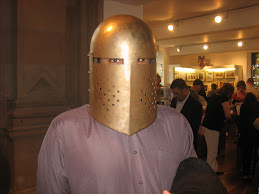1. Bill had a billboard.
> Bill also had a board bill.
> The board bill bored Bill,
> So Bill sold his billboard
> And paid his board bill.
> Then the board bill
> No longer bored Bill,
> But though he had no board bill,
> Neither did he have his billboard!
>
>
>
> 2. A big bug bit a bold bald bear and the bold bald
> bear bled blood
> badly.
>
>
>
> 3. How much dew would a dew drop drop, if a dew drop
> did drop dew?
>
>
>
> 4. Esau Wood would saw Wood. Oh, the wood
> that Wood would saw! One day Esau Wood
> saw a saw saw wood as no other wood-saw
> Wood ever saw would saw wood. Of all the
> wood-saws Wood ever saw saw wood, Wood
> never saw a wood-saw that would saw like
> the wood-saw Wood saw would. Now Esau
> saws wood with that wood-saw he saw saw
> wood.
>
>
>
> 5. If you stick a stock of liquor in your locker,
> it is slick to put a lock upon your stock.
> For some joker who is quicker will rob you of your
> liquor
> if you fail to lock your liquor with a lock.
>
>
>
> 6. Moses supposes his toeses are roses.
> But Moses supposes erroneously.
> For Moses, he knowses his toeses aren't roses.
> As Moses supposes his toeses to be.
>
>
>
> 7. She sells sea shells by the seashore.
>
>
>
> 8. Sheila is selling her shop at the seashore,
> For shops at the seashore are so sure to lose.
> Now she's not so sure of what she should be selling!
> Should Sheila sell seashells or should she sell
> shoes?
>
>
>
> 9. Theophiles Thistle, the successful
> thistle-sifter,
> in sifting a sieve full of un-sifted thistles,
> thrust three thousand thistles through the thick of
> his thumb
>
>
>
> 10. Now.....if Theophiles Thistle, the successful
> thistle-sifter,
> in sifting a sieve full of un-sifted thistles,
> thrust three thousand thistles through the thick of
> his thumb,
> see that thou, in sifting a sieve full of un-sifted
> thistles,
> thrust not three thousand thistles through the thick
> of thy thumb
>
Saturday, April 29, 2006
Tongue Twisters!
Thursday, April 20, 2006
First Class
Johannesburg, South Africa and London, England.
A white woman, about 50-years-old, was seated next to a black man.
"Madam, just as I thought, there are no other available seats in the Economy Class. I spoke to the captain and he informed me that there is also are no seats in the Business Class. However, we still have one place in the First Class."
Monday, April 17, 2006
Da Vinci's Code
Hey guys, this guy is from DTS, He wrote an excellent book on the
Darrell L. Bock is Research Professor of New Testament Studies at Dallas Theological Seminary in Dallas, Texas. He also serves as Professor for Spiritual Development and Culture for the Seminary's Center for Christian Leadership. He is the author of Breaking the Da Vinci Code and the upcoming Missing Gospels, to be published in August. His special fields of study involve hermeneutics, the use of the Old Testament in the New, Luke-Acts, the historical Jesus, and gospels studies.
In your opinion, what is the single most important error in the Da Vinci Code?
Probably the attempt to suggest that the divinity of Jesus Christ emerged late in the history of the early Church. It's an error because Jesus' divinity was right there from the very beginning and there's very good evidence it goes back to Jesus himself. What took time to work out was how to articulate the relationship between Jesus and the Father.
Why is the divinity of Jesus so important?
The divinity of Jesus is crucial because that's part of what makes Christianity unique. The claim is not that Jesus is divine in the sense in which humans can share in the divine. The claim is that Jesus is uniquely divine in a way that allows him to provide for humanity. So the result of distorting Jesus' divinity is to rob Christianity of its very uniqueness. This is why it's called "Christianity" and not "Jesus-anity." In the sense of "Christ" being the Messiah and the one who sits at the right hand of the Father.
Did the Council of Nicea vote to make Jesus divine?
There was no vote taken on the divinity of Jesus at Nicea. What took place was the writing of a creed that covered many teachings. The bishops who attended signed on at the end. Of the 216 or 316 who attended (the number in sources varies), only two did not sign on to the creed.
Why should we not believe that Gnosticism represents original Christian belief?
It's likely that Gnosticism as a full blown philosophy emerged in the Second century, although there are elements that it teaches that may well be older. So it is very unlikely that the original Christianity was Gnostic. On the other hand, the materials that we have in the Bible go back to the earliest decades of the movement.
Let's talk about the Canon of Scripture. Was choosing the books for the New Testament a political process?
There probably was an element of it that was political. Because it was an effort to distinguish the true from the false, and to include and exclude. But it was more of a process of recognition than selection. What I mean by that is, is that the books that were included were books whose roots went back to the Apostles and their followers. They were the books that gave evidence of impacting churches of a wide geographic range and time period.
Were they already recognized as canonical, then?
Well, they were in the process of being recognized. Now, they didn't function as a Bible really until the last part of the second century. What you had was individual books circulating for a time, and you didn't have the conscious effort to draw them into a collection until the end of the second century. So there's a very important 150-year period in there in which traditional Christianity is being communicated through little theological summaries that are embedded in these materials [the New Testament books] and hymns that are also present in these materials. As well as sayings that were associated with the practice of the sacraments, the practice of baptism, etc.
Are the Gospels based on Pagan mythology?
Absolutely not. All one has to do is read the pagan mythology and compare it to the way the Gospels express related but distinct ideas to see the difference. For example, when Alexander [the Great] is said to be born through the work of the gods, a snake is pictured as being responsible for impregnating his mother. In the Gospels, God speaks a word, and that's it.
What can you tell us about the Priory of Scion?
The only thing I'll say about the Priory of Scion is that there's evidence that it likely is a complete fabrication. Not by Dan Brown. But by a group of Frenchman from the 1950's.
Is the Gospel of Mary Magdalene a first-century document?
No, it's not. It's probably a late second-century text. It reflects the other extra-biblical Gospels of this period. And it's very unlikely that it tells us very much of anything that is historical.
Was Jesus married?
There is absolutely no evidence that Jesus was married, but even if he had been that would not be a reason for a cover-up. What marriage would have shown was that Jesus was completely human, and that's what the church has always confessed. The church has always confessed that Jesus was completely human and completely divine. But it did take several years of the disciples being with Jesus to work that out. It wasn't something they inherently understood. In fact, it probably was the Resurrection that solidified that thought in their minds, and Jesus' ascension to the right hand of the Father.
What would you say to critics who claim Christianity is patriarchal? Does it trample on the rights of women?
There is a sense in which Christianity was patriarchal. I don't think there is that much doubt about that. But it also affirmed the involvement and inclusion of women to a degree that was rather unprecedented for the first century. It might not match 21st century expectations, but it certainly came way down the road compared to the role of women in the ancient world. The very idea that women could sit at Jesus' feet and learn from him was debated in Judaism—whether that would be a task that women could or should perform. The idea that women in the ancient world weren't worthy as witnesses, yet the Resurrection appearances began with women, is another example.
What can you tell us about the Gospel of Judas?
The Gospel of Judas is a 4th century manuscript of a second century text that Irenaeus summarized for us in A.D. 180. So it is not new. Nor was it a secret. It does help us to see how one Gnostic Christian group saw things in the second century. And that's a matter of history that is helpful to us. But it tells us nothing about the real Jesus or the real Judas. Because it is full of Gnostic cosmology, which itself shows that the gospel comes from the second century, not from the first.
What would you like people to know about the real Jesus?
Jesus Christ came to earth to represent God's complete commitment to restoring the human relationship with him. And that is done through embracing the offer of forgiveness and the Spirit of God that Jesus provides through his death. The point is not to escape a certain fate in the end. The point is to reconnect with God in the context of a healthy and restored relationship of fellowship, accountability and worship.That's why Jesus said, "I came to give life, and give life abundantly."
Good Friday
There are so many ways and froms of worship on Good Friday. My offering of worship is a little different than most. When I think of all the agony, suffering and torture and humiliation that my saviour has suffered, it makes me want to weep. The Bible says to weep with those who weep and rejoice with those who rejoice (Rom 12:15; 1 Cor 12:26). But I was told by a dear friend in Christ that the cross is not something to mourn about but rejoice. Our sin is forgiven!
Who can argue about that but when I think about how He suffered and what it cost him, it makes me weep. Don't you feel sad? My saviour was brutally tortured and rejected and I think it is kind of shallow to shout, 'Praise the Lord or Hallelujah!' It seems insensitive. Imagine yourself in Jesus' shoes for awhile. How would you feel if people started celebrated your pain.
As for me, I will save my celebration for the ressurection. That where life all begins. Then is the time to rejoice and shout praises! But what do you think... Please comment below!
The Carpenter
He didn't have a P.H.D
He wasn't a lawyer
He wasn't an engineer
He wasn't even a computer consultant
He was a carpeter.
Jesus would be rejected by alot of my people. He doesn't live up to our shallow standards of success.
Isaiah 53
1 Who has believed our message
and to whom has the arm of the LORD been revealed?
2 He grew up before him like a tender shoot,
and like a root out of dry ground.
He had no beauty or majesty to attract us to him,
nothing in his appearance that we should desire him.
3 He was despised and rejected by men,
a man of sorrows, and familiar with suffering.
Like one from whom men hide their faces
he was despised, and we esteemed him not.
4 Surely he took up our infirmities
and carried our sorrows,
yet we considered him stricken by God,
smitten by him, and afflicted.
5 But he was pierced for our transgressions,
he was crushed for our iniquities;
the punishment that brought us peace was upon him,
and by his wounds we are healed.
each of us has turned to his own way;
and the LORD has laid on him
the iniquity of us all
Tuesday, April 11, 2006
Mission Girls
I remember when I met these mission girls. They were real about there commitment to Christ. They wanted to go to the places no one else would go to share the Gospel. They new about the needs and the poverty in other nations. It really changes your worldview. They were on there way to go and make a difference. It was beautiful! But what really caught my eye is the fact that they didn't shop at GAP or any expensive clothing stores. They would shop at used and 2nd hand stores for clothes. Instead, they would put their earnings into advancing the mission! It is hard to meet people like that these days.
We can be so vain and shallow. We run after all kinds of treasures that cater to us and not to loving God and our neighbor. We want to look good and even at the expense of helping others. What a shollow life huh? I know very few who are immune to it. You should check out my closet!
Monday, April 10, 2006
Some things I leared!
I just came back from a cool pre teen convetion called SPARK! I had an awesome time as I went to a couple of leadership sessions. I would like to share some of the things I got out of it!
What is the difference between Character and Inegrity?
Character:
- The combination of qualities or features that distinguishes on person, group, or things from another
- Public estimation of somones reputation
- Moral or ethical strength
- Steadfast adherence to a strict moral or ethical code.
- The state of being unimpaired soundness
- The quality or condition of being whole or undivided; completeness
Psalm 78:72, " And David shepherded them with integrity of heart;
with skillful hands he led them."
Neh 7:2, "2 I put in charge of Jerusalem my brother Hanani, along with Hananiah the commander of the citadel, because he was a man of integrity and feared God more than most men do."
Bill Hybels' 4 C's of Leadership:
1) Character
2) Chemistry
3) Commitment
4) Competence
2) Inegrity is an inside job:
- Not determined by circumstances - you are responcible for your choices. Your circumstances are as responcible for your character as a mirror is for your looks. What you see only reflects who you are.
- Not based on credentials - character comes from who you are, not by the titles we have earned or the positions we hold.
Are transient
Turn the focus to rights
Add value only to one person
Look past accomplishments
Often evokes jealousy in others
Can only get you in the door
Character
Is permanent
Keeps the focus on responcibility
Adds value to many people
Builds a legacy for the future
Generates respect and integrity
Keeps you there
Questions to Help you Measure Your Integrity
Adapted from "Becoming A Person of Influence." by John Maxwell and Jim Dornan
- How well do I treat people from whom I can gain nothing?
- How do I practice healthy transparency with others? If I don't, how can I start
- Do I role-play based on the persons I'm with? If so, what situations do I role-play in and how?
- Am I the same person when I'm in the spotlight as when I'm alone? Who can I ask to observe me and tell me their perspective on both my public and private life?
- Do I quickly admit wrongdoing without being pressed to do so?
- Do I put other people ahead of my personal agenda? He have I served the people I lead recently without serving my ministry goal?
- Do I have an unchanging standard on moral decisions, or do circumstances determine my choices? If there is a disconnect, in which circumstances do my standards change?
- Do I make difficult decisions, even when they have a personal cost attached to them?
- When I have something to say about people, do I talk to them or about them?
- Am I accountable to at least one other person for what I think, say and do? What is it and what kind of frequency do we have?
- Is my outward, public ministry or work superseding my inward growth? What have I been learning/studying/reflecting on intentionally and recently that has nothing to do with public ministry?
Care
"People don't care how much you know until they know how much you care."
Heard this quote the past weekend at a pre teen conference. Isn't it true?













